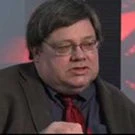 صاحب محل في سوق الشورجة، بغداد، العراق 2020. الصورة: رسولالي / Shutterstock.com
صاحب محل في سوق الشورجة، بغداد، العراق 2020. الصورة: رسولالي / Shutterstock.com
Is peace enough to restore prosperity to a country that has suffered from fragility, conflict, and violence? Iraq has endured nearly forty years of constant disruption. The defeat of ISIS in 2017 led many Iraqis to conclude that the security situation was improving to the point where normal life might resume. Yet by October 2019, widespread protests against the government reflected continued high unemployment and weak provision of basic government services.
The newly released “Breaking out of fragility: A Country Economic Memorandum for Diversification and Growth in Iraq“ underlines the importance of growing and diversified trade to support national growth and prosperity. However, the legacy of decades of conflict have left Iraq with a unique situation with respect to trade and trade policy.
First, Iraq is one of the least diversified exporters in the world. In 2018, only 4.1% of Iraq’s exports consisted of something other than crude oil – down from 8.5% in 2004. Abandonment of farms and factories during years of conflict has significantly impaired Iraq’s productive capacity. As a result, the combined share of agriculture and manufacturing in Iraq’s GDP has fallen by about three-fourths since the late 1980s. It is hard to export what is not being produced.
Second, Iraq heavily regulates imports. An estimated three-fourths of Iraq’s imports require a special license, as well as a license to obtain the foreign exchange necessary for importing . Iraq’s Trade Ministry is the only one in the world responsible for food rationing for the general population, a legacy of the period of international sanctions in the 1990s and the U.N. Oil-For-Food Program which ended in 2003. A multitude of state-owned companies regulate various aspects of importation. The system is subject to corruption and abuse – fake applications to import can be used to spirit foreign exchange out of the country, limiting the amount available for legitimate businesses to obtain imported equipment and intermediate goods.
Third, Iraq’s borders are simultaneously cumbersome to navigate in some places, and porous in others. Where border checkpoints have been re-opened, traders face long delays, high compliance fees, and the burden of submitting paper documents. Procedures are inconsistent and lack of coordination between border compliance agencies compounds delays. There is a perception that customs and other border compliance agencies are corrupt and lack professional training. Deterioration of roads and highways further increases transport costs. At the same time, goods cross borders informally in other places, particularly at the long border with Iran, where incentives for non-transparent trade to avoid sanctions are high.
Further complicating the situation at the border, Iraq has two de facto customs regimes, one in the Kurdish Autonomous Region and one covering the rest of the country. Tariff schedules and border procedures are different in the two regions. The situations have given rise to internal highway checkpoints that frustrate truck movement between the two regions.
Nonetheless, there are a number of measures that can be taken to reduce trade costs and support export diversification.
First, the maintenance of peace and stability can itself go a long way to bringing about export diversification. Iraq has a long list of legacy exports for which latent knowledge about production is still in the economy. Products frequently exported in the past include rice, dried fruit, electric lamps, distillates of coal tar, crushed stone, wool, skins and hides, copper products, polymerized chemicals, trucks, and motor vehicle parts, among others. Some of these products will likely re-emerge as a consequence of improved security and government transparency. As the 19th Century French economist, Frédéric Bastiat, expressed, “where goods do not cross frontiers, armies will”. Reduced conflict will naturally spur more productivity for export. Moreover, reducing trade costs at the border is also likely to support export diversification.
Second, Iraqi Customs should be modernized to promote service integrity and professionalism . Best-practice trade facilitation policies should be adopted, following the one-government approach and policy harmonization among all border inspection agencies. Beyond the apparent need to improve the border management facilities, trade processes and procedures should be simplified and digitalized via the proper use of trade technology. Modern risk management techniques can lead to cargo inspections being more selective and speeding up trade at the border. Recent efforts of the government to re-establish state control over the border crossings, and reducing the role of militias and “corruption mafias” are a promising sign.
Third, Iraq should continue its recently re-started bid to join the World Trade Organization (WTO). The accession process requires the sustained engagement of all domestic actors, a true cross-ministerial and private sector collaboration platform. This includes re-unifying the customs territory and equitably sharing the revenues, as well as increasing transparency of import administration procedures. Engagement with the WTO Working Party can help bring to bear the perspective of Iraq’s trading partners as they face these same issues. Moreover, using the principles of the WTO Trade Facilitation Agreement as a template can help to attract resources and technical support to Iraq’s drive to modernize its own border procedures, even prior to formal WTO membership.





Join the Conversation